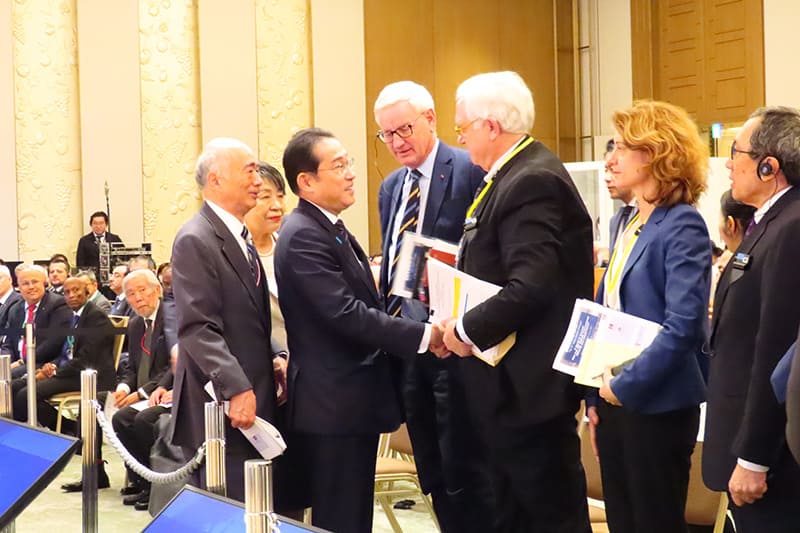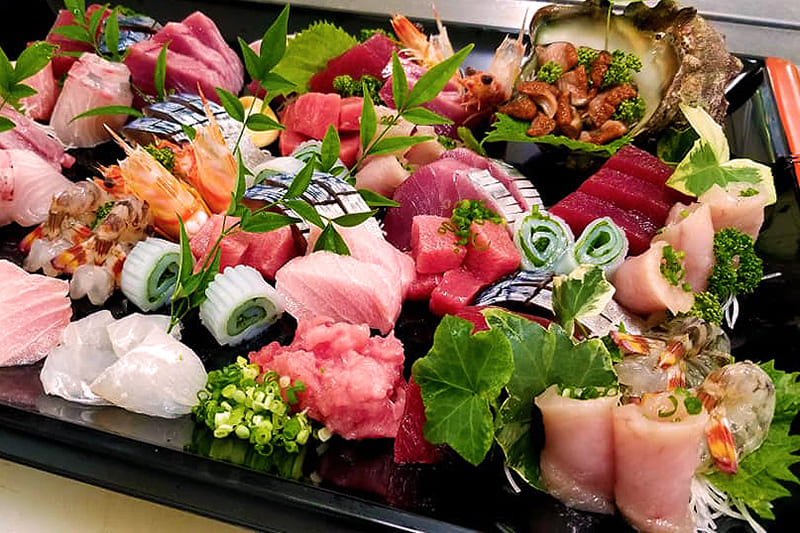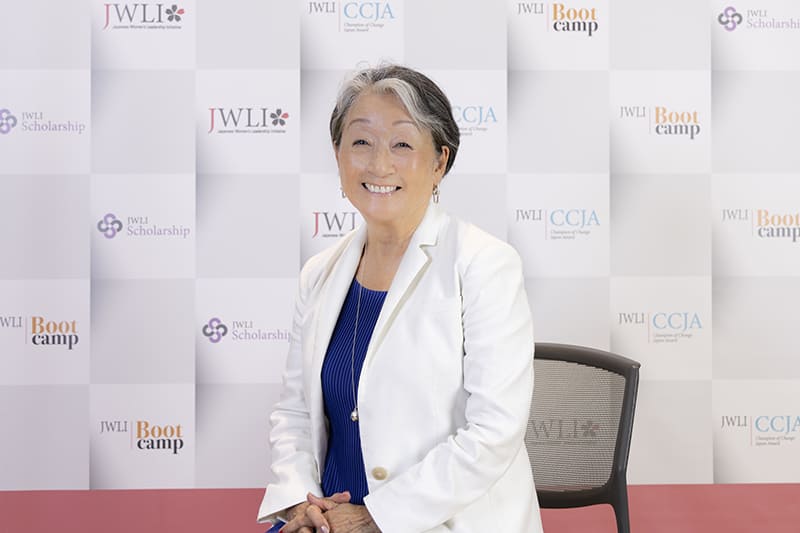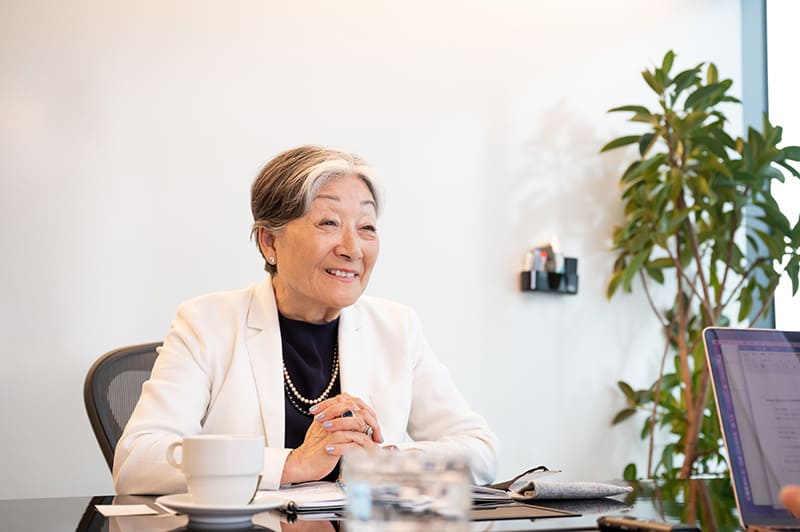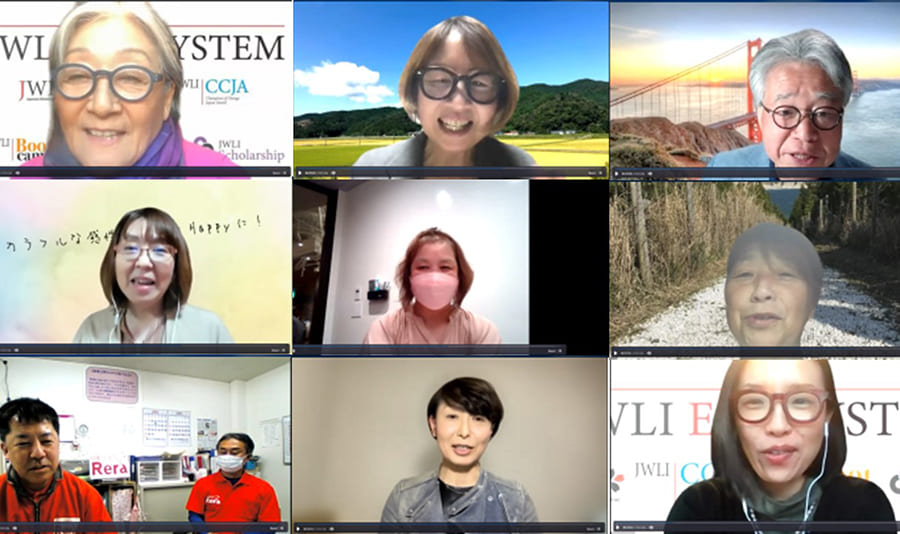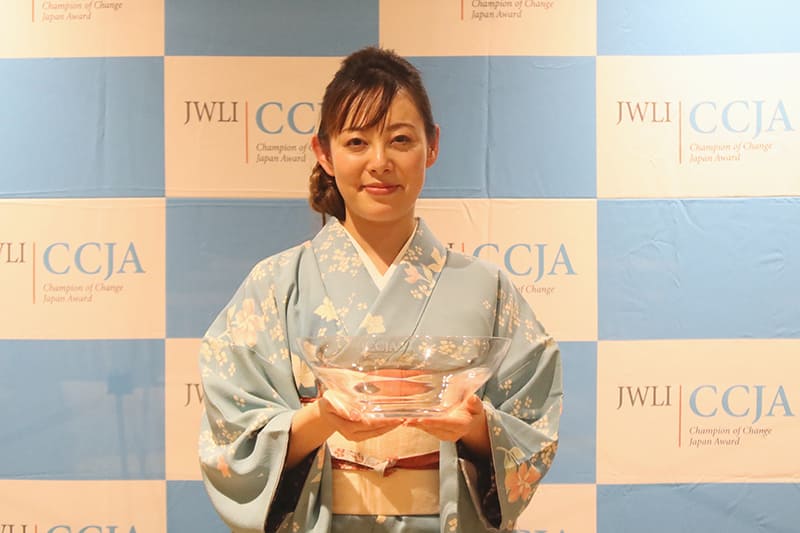April 28, 2023
Women at JWLI summit call to turn crisis into chances

The 2023 Japanese Women’s Leadership Initiative (JWLI) Global Summit was held at the East-West Center in Honolulu on March 23 with the theme “Transforming Crisis into Opportunity.” The JWLI is an executive women’s leadership program started in 2006 by Atsuko Toko Fish, the recipient of prestigious awards including the Champion of Change award from the White House in the U.S. as well as the Order of the Rising Sun from the emperor.
The event had a keynote speech followed by a global panel moderated by Anisa Kamadoli Costa, chief sustainability officer at Rivian Automotive.
The keynote speaker was Suzanne Puanani Vares-Lum, the president of the East-West Center. Since its foundation in 1960, the center has contributed to better understanding and cooperation among the U.S. and countries in Asia and the Pacific region through initiatives and educational programs, and has had 9,000 alumni from Japan alone. Her talk emphasized the importance of ensuring opportunities for women worldwide and transforming crisis into opportunity, which are part of the broad strategic mission of the center.
Allies and transformation
One important theme in the speech was the idea of male allies. When Vares-Lum, a retired major general, showed pictures of herself on the job in uniform, she pointed out that most of the others around her were men. “But these are my friends, my allies who have my back. I wouldn’t have been able to get where I am today without my male allies,” she said.
Of course, there are nay-sayers — “barking dogs” who say, “You can’t do it” or “You’re not supposed to be here,” Vares-Lum said. “I just learned to ignore that. If you focus on that, you will never get to the goal.” She spoke of her mother, who grew up in Japan in the 1940s and once accepted some of these negative ideas. Even as Vares-Lum rose through the ranks of the military, her mother expressed doubt that her daughter could succeed in a male-dominated system. In the end, though, Vares-Lum was inspired by how her mother’s perspective shifted over time, which proved that “people can change, the way we think can change.”
In response to those on the periphery who have expressed discomfort with groups like JWLI as being “for women only,” Vares-Lum suggested that the perspective be changed to “a human event” that addresses issues for half of the population that often go overlooked. “But it can’t come from only women. We need men’s voices as well, because these are human issues,” she said. Empowering women also makes good economic sense, she added: “Men and societies as a whole benefit when women thrive. The countries that do well and thrive, opportunities for women are there.”

From crisis to opportunity
The global panel consisted of five female leaders who shared their stories, perspectives and ideas about turning crisis into opportunity.
Megumi Ishimoto is a graduate of the JWLI program and the founder of the nonprofit Women’s Eye. Ishimoto’s work is involved with connecting grassroots-level issues to policymakers at the top. In the aftermath of the Tohoku earthquake, Ishimoto visited evacuation centers and witnessed that no special considerations had been made for women’s hygiene or privacy. “There were no partitions or sanitary products,” she said. In her view, part of the reason for this glaring oversight is that there were no women in decision-making positions. Single mothers were even more adversely affected in the aftermath of the disaster. With school closures and a lack of day care services, many of these women had difficulty continuing their employment and making ends meet. Ishimoto and her team saw an opportunity in the crisis and wanted to make a positive change. “We collected more than 5,000 single mothers’ voices,” she explained, “and we now have this data which led to a single mothers’ allowance from the government.” For social change, data is a powerful tool.
Panelist Cathy Betts is the director of the Hawaii Department of Human Services. She was tasked with modernizing support systems during the COVID-19 pandemic. She mentioned how antiquated some of the processes and systems were. “There are typewriters in my office, and some of the systems we rely on take 45 minutes to log in,” she said. They needed to modernize not only to deal with the pandemic-induced increase in applicants for programs like food stamps, but also to create a better, more sustainable working environment. “A lot of caregivers work for us, and I’m one of them, with two young children,” she added. She is elated that her workplace now has embraced policies like teleworking and more flexible decision-making that does not depend on one person always being there. “I learned that when you uplift women, you don’t just uplift their families, you uplift entire communities,” she said.
The philanthropic sector was not spared by the pandemic either. Patricia Matthias is head of the Gender Platform for the Asia Venture Philanthropy Network (AVPN), which seeks to improve the lives of women and girls across Asia by mobilizing capital. The pandemic’s travel restrictions and lockdowns challenged AVPN’s traditional strategy of meeting with specific organizations to provide direct relief. “So we developed pooled funds with our partners across Asia,” she explained. By collaborating in this way, they were able to amass large-scale funds to the tune of millions of dollars, which different organizations could apply for remotely. The strategy of pooled funds worked so well that AVPN has continued it. “Our most recent fund focuses on women’s economic empowerment in Asia — including Japan — and it is our largest to date, at $25 million over five years,” she said.
Roz Lee, the former head of philanthropy at the Equality Fund, which is committed to funding feminist futures, commented on the effectiveness of philanthropic dollars as a whole. “It still is just a drop in the bucket compared to what governments are capable of doing,” she said. “If we think about gender equality in the global context, at the current rate at which we are investing, it will take 300 years to achieve it.” But with philanthropy, there can be fewer restrictions placed on the funding, and she expects that, if allocated properly, it can help accelerate change.
To the future

According to the Global Gender Gap Report 2022 put out by the World Economic Forum, there is still a lot of work to be done in achieving parity between men and women worldwide. In the report, 146 countries were examined across a wide range of measurements, and Japan ranked highly, for example at 14th place for education compared to the U.S. in 51st place. “But when we look at the economic gap,” Vares-Lum said in her address, “the U.S. is 27th and Japan is 116th. So there is a huge economic gap in Japan despite having a highly educated population.” The Hawaiian language, she said, has a phrase that means “strive for the summit.” Achieving parity will be a treacherous mountain road filled with obstacles, some that might make us fall down. “But we have to get back up, never give up, and keep moving towards that summit.”
Aiming to highlight issues related to a sustainable society, The Japan Times gave its support to this event by becoming a media sponsor.

